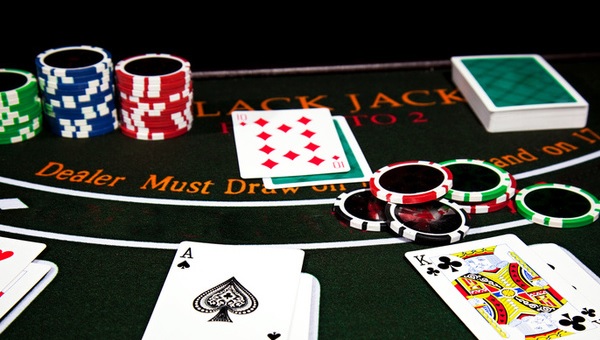The history of poker shows it’s inception in the early nineteenth century, as well as how the game has been depicted in diverse cultural works such as literature, art, cinema, television, music, periodicals, and so on.
Along the way, there is also discussion of poker’s many ties to other aspects of American society, such as economics, politics, military and conflict, sports, and so on.
In the months leading up to the book’s release, I’d want to share some experiences and material that didn’t make it into game theory, artificial intelligence, and poker in War Games online. Let’s dive in furthermore!
Game Theory, Artificial Intelligence, and Poker in War Games online are More Than a Game

The film is WarGames, a Cold War thriller starring Matthew Broderick and Ally Sheedy from 1983. If you’ve watched it, you might not recall how poker plays a role in the story, but it does – and in a big way.
The plot revolves around a high school kid named David inadvertently hacking into the nation’s nuclear missile launch control system, which is housed on a supercomputer dubbed WOPR or War Operation Plan Response. Nothing is better than slot gacor.
Worse, believing he has hacked into a computer gaming firm, David chooses to play a game called Global Thermonuclear War, siding with the Soviet Union against the computer siding with the United States.
The game begins with a nuclear war simulation that, regrettably, matches a real one well enough to put both the USSR and the US on high alert, raising the likelihood of a genuine nuclear war being launched by the superpowers misinterpreting the other side’s movements.
What do game theory, artificial intelligence, and poker in War Games online to do with a tale like this? The correlation is related to games both war games and other types, such as poker.
The Human and the Machine
To attempt to hack into the gaming company’s systems and play their games, David instructs his computer to dial any phone numbers with prefixes matching those in the company’s actual location.
That’s how David unintentionally gains access to NORAD’s computer, the WOPR, however when it offers him the opportunity to play numerous games, it’s reasonable that David thinks he’s discovered the computer gaming firm.
Chess, checkers, and many card games, such as blackjack, bridge, gin rummy, hearts, and poker, are among the games included. There are other games like Desert Warfare, Air-to-Ground Actions, Theaterwide Biotoxic and Chemical Warfare, and Global Thermonuclear War, which David like to play.
Another game on the list is Falken’s Maze, which prompted David to accurately identify the games’ designer, Dr. Stephen Falken, a bit sooner. This, in turn, assists David in properly guessing a password, allowing him to begin the game.
What David doesn’t understand is that the game theory, artificial intelligence, and poker in War Games online actually a software simulating a nuclear war, the commencement of which puts everyone at NORAD into a panicked frenzy.
Looking Back on Game theory, Artificial Intelligence, and Poker in War Games Online
When investigating Falken, David visits the library and discovers a June 1963 Scientific American article titled “Falken’s Maze: Teaching a Machine to Think.” He’s shown looking for another piece co-written by Falken that was published in an old edition of The Atlantic and titled “Poker and Armageddon: The Role of Bluffing in a Nuclear Standoff.”
Such features demonstrate how the Falken persona was clearly inspired by other relatively early computer programmers and creators of what would ultimately be known as “artificial intelligence,” many of whom employed strategy-based games like poker as main research method.
Of course, there are several links between that study the game theory, artificial intelligence, and poker in War Games online war games, including nuclear combat simulations. They used heads-up stud poker as a model game to investigate theories of bluffing as part of their larger study that helped establish the hugely influential discipline of game theory.
What Falken’s Essay Said about Game theory and Poker in War Games Online
Falken’s essays on poker and bluffing are clearly intended to allude to von Neumann and Morgenstern, as well as game theory in general. They also recall the work of others, such as Nicholas V. Findler, who worked on poker-playing computer systems in the early 1960s and published publications discussing his findings at the time.
In other words, the game of Global Thermonuclear War that the computer plays in WarGames was created after its designer investigated and produced previous games for the computer to play and learn from, such as poker. Historically, the same was true for humans’ research of strategic approaches to nuclear confrontation, which was also heavily inspired by game theory and prior analyses of poker bluffing.
Read More: Night of The Living Tales Review: RTP 96.20% and Volatility

